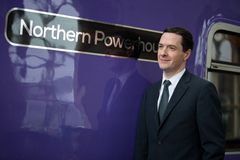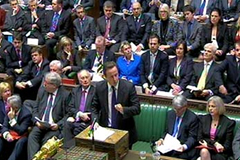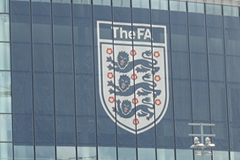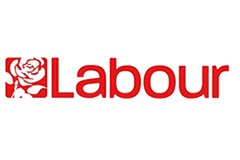It never ceases to amaze me how little politicians, journalists and commentators learn from history.
Post the General Election we have had our very own political editor, Jim Hancock, virtually declaring the death of the Labour Party and urging a realignment of the left, which would constitute some form of bizarre arrangement with the Liberal Democrats, the Greens and even the Scottish National Party.
We then have the group of ideological, infantile lefties suggesting that Labour’s loss was due to the fact that it wasn’t left wing enough!
Finally, a whole range of ‘experts’ are suggesting that the UK is now Tory forever, and Labour faces a lifetime of opposition as the nation turns blue.
Jim’s argument isn’t new. Indeed it was one articulated by trendy London modernisers throughout the eighties and early nineties as we appeared to be in the middle of a nightmare scenario that would deliver us a Thatcher led administration for eternity.
Proportional Representation and deals with other anti-Tory parties seemed the only way back for Labour to this relatively influential group of individuals. Then along came Tony Blair, a landslide election victory and ironically many of these figures went off to become special advisers to New Labour Ministers.
Also worth noting, following Blair’s three, count them, three consecutive General Election victories, the same commentators who are writing Labour off today were doing the obituaries for the Conservative Party.
The ‘not left wing enough’ claptrap is something I have been brought up on throughout my time as a Labour Party member and politician. When I was 16 I sort of sympathised. By 1983, a year when Labour presented a Manifesto that is now remembered as the longest suicide note in history, I quickly abandoned the fantasy politics of the left.
It wasn’t simply my desire to see Labour actually win. It was the fact that I was knocking on the doors of people in Skem who were virtually laughing in my face as I asked them if they would be voting for a party that was advocating unilateral nuclear disarmament, wide scale nationalisation, and taxing the wealthy ‘until the pips squeaked.’
If we couldn’t convince traditional Labour supporters of our case, then our case was wrong, and we needed to change it.
The modernisation of the party, and the drive to drag it back to a centre left policy and strategy position was a long and arduous one. Labour had nearly got there by 1992, but a combination of Neil Kinnock’s leadership and, more damagingly, a ‘tax bombshell’ that was being offered by the then Shadow Chancellor John Smith, done for them.
Blair and New Labour reminded the party that it was in the business of politics to win, not to protest. It wasn’t anti enterprise or anti aspirational- indeed it needed to embrace the notion of celebrating entrepreneurs and wealth creators, for without creating wealth, how could you redistribute it?
New Labour also did the sums. From official and independent treasury figures it recognised that taxing people at 50% was gesture politics of the highest order. From the day HMRC started to record tax collection figures they have proved positive that they take more revenue when the top rate of tax is 40% than when it is 50% or higher.
Huge investments in our schools, the NHS and other public services that had been neglected over an eighteen year period; the introduction of the minimum wage; Trade Union rights for workers at GCHQ; civil partnerships; an outward looking, pro –European stance; the regeneration of our major provincial cities; plus devolution of powers and the establishment of the Welsh Assembly and the Scottish Parliament. These are among a list of New Labour achievements that the ‘left’ prefer to ignore, as they associate Blair and his government with one issue and one only – Iraq. It is easy politics, but it’s lazy and not particularly clever either.
A further lurch to the left is the greatest way to make Labour irrelevant for another decade. The party needs to remember that ‘if you do what you’ve always done, you get what you always get’. Poor leadership, offering tax rises, and having a narrative that is perceived as left wing leads to election defeats. Fact. New Labour – played three, won three!
I‘m not advocating a total regurgitation of the five pledges, a New Labour offensive and a re-run of 1997. That would be nearly as daft as what the left is saying. But Labour needs to find a way that reconnects it with those that matter, the electorate. And it needs a leader that understands that too.
Some will accuse me of being a middle class professional who has no understanding of the ‘working class’. But as the son of a trade unionist bus driver, who spent six months on the dole, and worked for years as a Welfare Rights adviser I’d say that’s bollocks.







